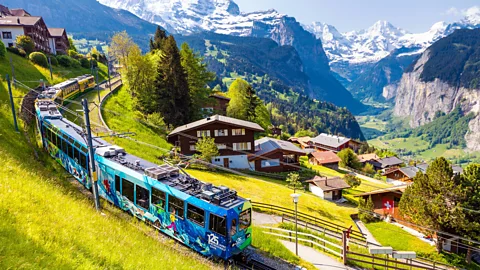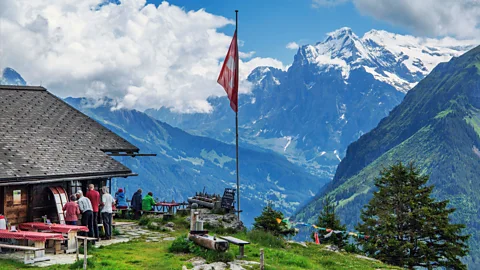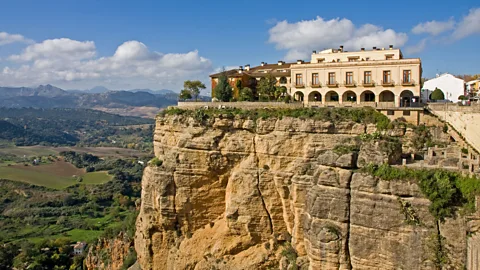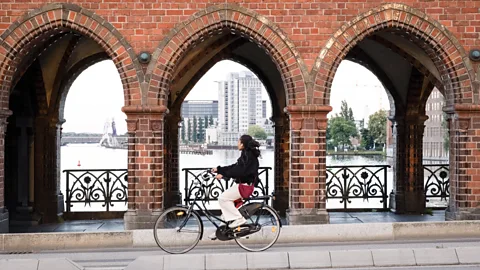Can Europe beat the overtourism crisis?
 Alamy
AlamyLast year's anti-tourism protests drew global headlines. This summer, the tensions are back – but so are ideas to fix the system.
Thousands of people have taken to the streets in the Canary Islands this year to protest mass tourism. Now, a new wave of anti-tourism protests is being planned across southern Europe later this summer. You could be forgiven for feeling that nothing has changed since last year when frustration over crowded cities, soaring house prices and bad traveller behaviour erupted into public anger.
Change in the tourism industry is often slow, requiring consensus from a broad range of stakeholders as well as time to implement schemes. But signs of progress are emerging. Across Europe, a slew of new initiatives is aiming to balance tourism with the needs of local residents – addressing the environmental, social and economic pressures created by overtourism.
Thanks to screaming headlines and greater awareness of the issues, travellers are becoming increasingly conscious of their impact. Meanwhile, local communities have ramped up pressure on authorities to take meaningful action. Here's how three destinations are responding with new ideas for a more sustainable travel season.
Switzerland: Investing in trains and taxes
Switzerland's national train network will be run completely on hydroelectric power this year as part of its new Swisstainable strategy that aims to distribute tourism more evenly across the country and calendar. With its ski seasons threatened by warming temperatures and its glaciers vulnerable to collapse – as seen in the recent tragedy in Blatten – Switzerland knows all too well the importance of balancing tourism and the environment. The landlocked nation is focussing on public transport; it has some of the most public transport-accessible mountains in the world, with mountain trains servicing their peaks for more than 150 years. The Swisstainable website offers 33% off public transport when booking a sustainability-certified Swisstainable hotel, or 25% off for any stay in a Swisstainable hotel.
 Alamy
AlamyIn addition, campaigns featuring Roger Federer are pushing for off-season travel, showing what the country is like beyond ski season and summer hiking. Ski lifts across the country will be running for longer periods and seasonal hotels will also extend their opening dates, making Switzerland more accessible year-round.
While Switzerland isn't in Europe's top-10 overtouristed destinations in Europe (Zante, Istria and Fuerteventura top the list, according to a recent Which? report), it faces pressure in hotpots like the waterfall-rich town of Lauterbrunnen, and Lake Brienz, where the Korean Netflix drama Crash Landing on You was filmed. According to a 2024 survey, locals find Instagram tourism – a superficial, drive-by consumption of culture and local life – a particular problem.
Thoughtful Travel
Want to travel better? Thoughtful Travel is a series on the ways people behave while away, from ethics to etiquette and more.
"We get jet-setting – but not in a good way," said Alexander Herrmann, Director UK & Ireland Switzerland Tourism. "It can hit you unprepared when enormous numbers of people arrive. The way we thought about it is: how can we benefit a bit, by using [visitor numbers] to build infrastructure, toilets and parking? It happened very quickly, and you have to find a way to manage the situation."
Switzerland Tourism's solutions include a tourism tax of CHF5 (£4.50) for anyone visiting the pier featured in the Korean drama, with money being spent on local maintenance and infrastructure; plus a new car park outside Lauterbrunnen that links to an easy train connection into the town and its waterfalls, thereby helping the flow of tourists on the overwhelmed one-way road.
Their message: explore off season and by public transport; and be prepared to pay more for the most popular spots.
Spain: Using data to redirect tourists
Spain has been the focus of much of the overtourism debate over the last two years, and continues to be hugely popular as the number one destination for British tourists in 2024 and the second most-visited country in Europe. But amid growing concern about overtourism – especially in the Canary and Balearic Islands – the country is acting fast.
 Alamy
AlamyAlready this year, it has called for the removal of nearly 66,000 unregulated Airbnb listings and pulled back on social media influencer campaigns that bring selfie tourists to its small and easily overwhelmed beaches. And there's more.
"We are working with a sustainable tourism model leading with smart technology," said Jessica Harvey, head of press at the Spanish Tourist Office. "We have developed a digital platform that monitors how many people are on beaches, as well as the air quality, sea temperatures, weather and even jellyfish in the water."
The information can be accessed by tourism offices and hoteliers via a Smart Destinations app, helping them – and therefore visitors – make smarter decisions about where to go and what to do.
It's one of several initiatives being taken in Spain, where Harvey says just five regions of the country – The Canary Islands, The Balearic Islands, Valencia, Catalonia and Andalucia – receive 85% of visitors. Tour operators and travel agents are being introduced to new regions to avoid bottlenecks in popular spots; and tourist taxes that taper off for longer stays have come into play in some areas, including the Balearic Islands, benefitting those who stay longer.
The government is also investing heavily in cultural heritage through its Paradores of Spain initiative, a state-owned luxury hotel chain using historic buildings like castles and manor houses to attract travellers beyond the beach.
"We want to welcome everybody," Harvey said. "We just want to move the tourism model to make it more sustainable long term."
 Getty Images
Getty ImagesBerlin: Rewarding sustainable tourists
Hot on the heels of last year's CopenPay initiative in Copenhagen – which has been extended and enhanced for summer 2025 – Berlin is developing its own set of rewards for sustainable tourists.
"The aim is to use targeted incentives to make sustainable behaviour more attractive to guests," explained Sabine Wendt, CEO of visitBerlin. "These could include free guided tours, discounts or admission to attractions if our Berlin guests take part in planting or waste collection campaigns next year."
More like this:
• 8 ways to travel more sustainably in 2025
Berlin is pushing its green credentials through influencer campaigns and a growing directory of eco hotels, sustainable souvenir shops and bike trails. The tourism authority has also developed an unusual 15-minute city concept, meaning that participating hotels have everything you need within 15 minutes on foot or by bike, helping travellers lower their footprint while exploring the area like a local.
What about flights and cruises?
Despite these promising efforts, two elephants remain in the room: air travel and cruising. Even the most thoughtful destination strategies can't offset the impact of rising tourist arrivals by sea and air. Without limits on visitor numbers, Europe's most popular spots are likely to keep feeling the strain – and protests are likely to continue.
"There will be anti-tourism demonstrations in Spain this summer," said Harvey. "The solutions take time to work. Communication is the key: we need to understand why these things are happening. It's not directed at British tourists – it's about making sure that local people's quality of life is not impacted."
"Will we still be talking about overtourism in the Canary Islands in 10 years' time? Let's see."
--
If you liked this story, sign up for The Essential List newsletter – a handpicked selection of features, videos and can't-miss news, delivered to your inbox twice a week.
